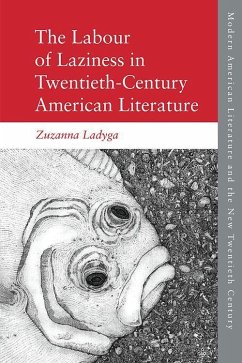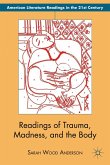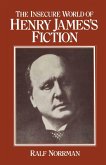Analyses the theme of laziness in twentieth-century American Literature The Labour of Laziness in Twentieth-Century American Literature focuses on the issue of productivity, using the figure of laziness to negotiate the relation between the ethical and the aesthetic. This book argues that major twentieth-century American writers such as Gertrude Stein, Ernest Hemingway, John Barth, Donald Barthelme and David Foster Wallace provocatively challenge the ethos of productivity by filtering their ethical interventions through culturally stigmatised imagery of laziness. Ladyga argues that when the motif of laziness appears, it invariably reveals the underpinnings of an emerging value system at a given historical moment, while at the same time offering a glimpse into the strategies of rebelling against the status quo. Zuzanna Ladyga is Associate Professor in American Literature in the Department of Modern Philology at the University of Warsaw in Poland.
Hinweis: Dieser Artikel kann nur an eine deutsche Lieferadresse ausgeliefert werden.
Hinweis: Dieser Artikel kann nur an eine deutsche Lieferadresse ausgeliefert werden.








